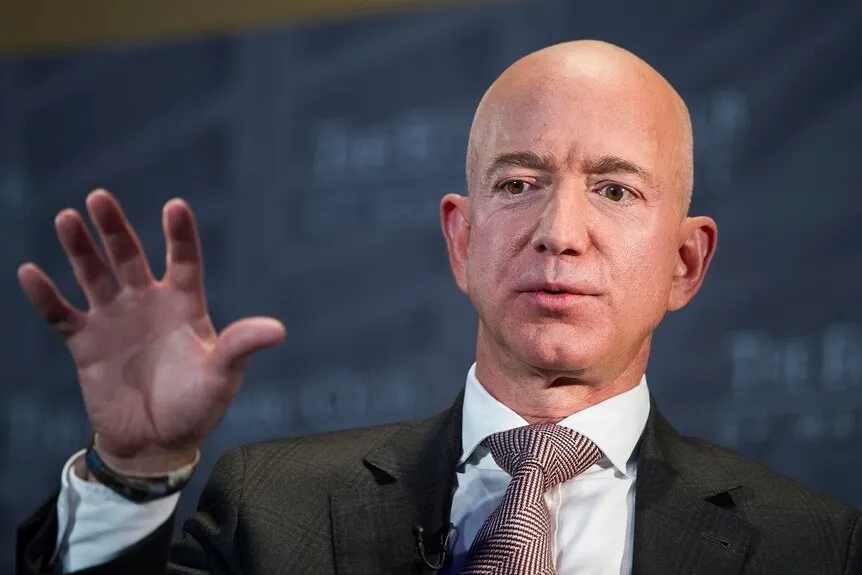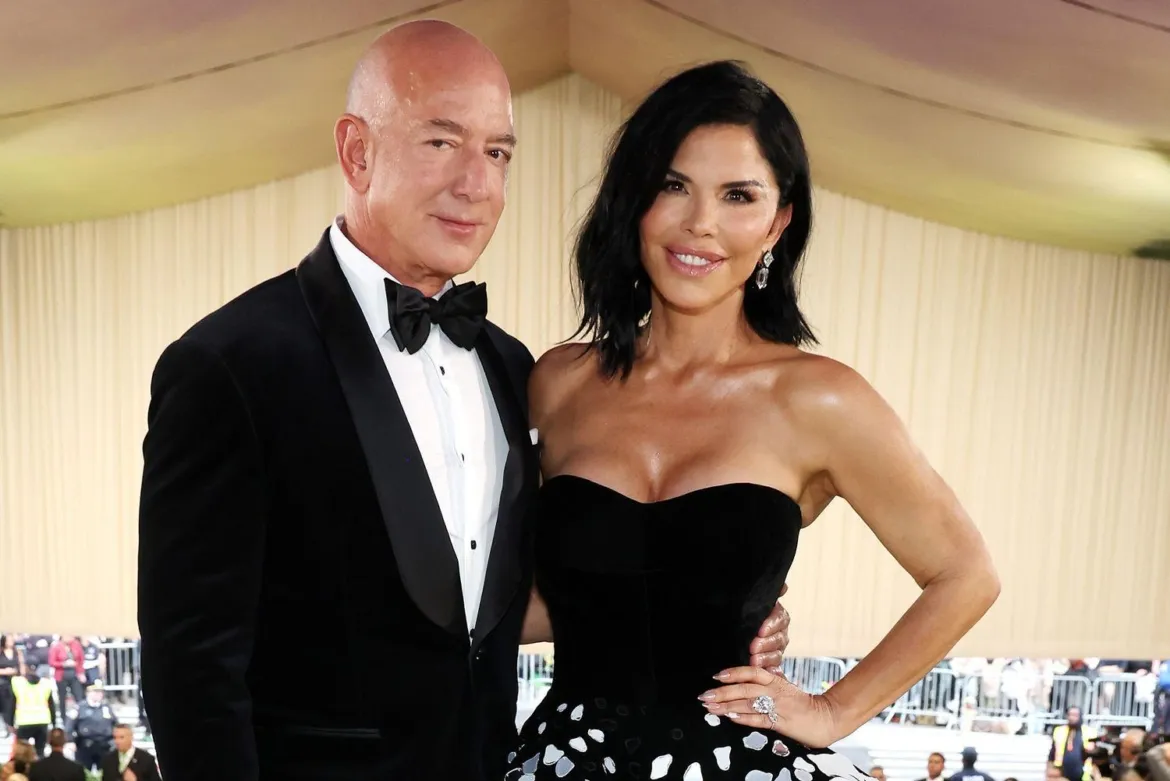

A Major Nuisance or a Golden Opportunity: Does Jeff Bezos’ Wedding in Venice Really Threaten This Canal City?
Venice, a city of unparalleled beauty and historical significance, is no stranger to grand events. Yet, the upcoming wedding of Jeff Bezos and Lauren Sánchez has ignited a fierce debate. Is this billionaire extravaganza a golden economic opportunity or a major nuisance that threatens the city’s fragile ecosystem and local way of life? While some see the event as a much-needed financial boost, others fear it will exacerbate issues like overcrowding and environmental degradation. This article explores both perspectives and examines the broader implications for Venice.
The Grand Affair: What We Know So Far
Jeff Bezos, the billionaire founder of Amazon, and his fiancée Lauren Sánchez are set to tie the knot in Venice, one of the most romantic and iconic cities in the world. While the exact details remain under wraps, reports suggest a lavish, multi-day affair with a guest list featuring global A-listers, from Hollywood celebrities to business tycoons. Among those rumored to attend are Leonardo DiCaprio, Kim Kardashian, and Bill Gates.
Venice has long been a destination for luxury weddings, and Bezos’ choice is hardly surprising. However, the scale of the event has raised concerns. His $500 million megayacht, Koru, will reportedly play a central role in the celebrations. With its towering masts and state-of-the-art facilities, the yacht symbolizes the opulence of the event. But can Venice handle such an influx of ultra-wealthy guests without compromising its delicate balance?

Economic Boom: A Much-Needed Lifeline for Local Businesses
For many Venetians, Bezos’ wedding represents a golden opportunity. The influx of high-profile guests means substantial revenue for the city’s luxury hotels, restaurants, and service providers. Venice has struggled with economic downturns in recent years, especially following the COVID-19 pandemic, which decimated tourism.
Luxury hotels like Aman Venice and the Gritti Palace, both rumored to be hosting wedding guests, stand to benefit significantly. Similarly, high-end restaurants, gondola services, and boutique shops catering to elite visitors will likely see a surge in business. The wedding could inject millions into the local economy, creating temporary jobs and boosting the hospitality sector.
Furthermore, global media coverage of the event could reinforce Venice’s status as a premier wedding destination, attracting more high-net-worth individuals in the future. The exposure could have long-term benefits, bringing sustained interest from luxury travelers.
Environmental and Social Concerns: A City Under Threat
While the economic benefits are evident, many locals and environmentalists argue that the wedding comes at a significant cost. Venice is already struggling with the negative effects of over-tourism, rising sea levels, and infrastructure strain. Large-scale events like this, they argue, only worsen the situation.
Overcrowding and the Impact on Daily Life
Venice receives around 25 million tourists annually, and residents have long complained about the city being overrun. Large weddings and high-profile events add to this congestion, making it harder for locals to go about their daily lives. Streets become clogged with security personnel and media crews, while transport services prioritize wealthy guests over residents.
There are also concerns about the “Disneyfication” of Venice—the idea that the city is becoming a theme park for the ultra-rich while ordinary Venetians are priced out. Rising property prices, driven by the demand for luxury accommodations, have already forced many locals to move away. Events like Bezos’ wedding could further cement Venice as an exclusive playground for the elite, rather than a living, breathing city.
The Environmental Impact of a Megayacht
One of the most controversial aspects of Bezos’ wedding is his use of the Koru yacht. Venice’s fragile lagoon ecosystem is already at risk due to rising tides, pollution, and erosion. Large yachts, even when anchored outside the main city, contribute to water movement that accelerates the degradation of Venice’s foundations.
In 2021, Venice banned large cruise ships from entering its central waterways due to their damaging effects. While Bezos’ yacht does not fall into the same category, its presence raises questions about double standards. If the city is serious about preserving its environment, should such vessels be allowed during high-profile events?
A City Divided: The Public Reaction
The reaction to Bezos’ wedding has been mixed. On one side, business owners and officials, including Venice’s mayor Luigi Brugnaro, see it as a testament to the city’s appeal. Brugnaro has reassured residents that the wedding will be managed efficiently and will not disrupt daily life.
However, many Venetians remain skeptical. Previous celebrity weddings, like George Clooney’s 2014 nuptials, caused significant disruptions, with streets blocked and public spaces repurposed for private functions. Activists argue that while the ultra-rich enjoy their celebrations, ordinary citizens bear the cost in the form of inconvenience and environmental damage.
Local groups have also raised concerns about the lack of transparency. Who benefits most from this event? Will any of the profits go toward preserving Venice’s heritage, or will they simply enrich a select few businesses? These questions remain unanswered, fueling resentment among some residents.
Balancing Celebration and Preservation: The Way Forward
Venice is at a crossroads. On one hand, it thrives on tourism and luxury events, which sustain its economy. On the other, its fragile infrastructure and local culture must be protected from the pressures of over-tourism and excessive commercialization.

To strike a balance, city officials must implement policies that ensure major events benefit both the economy and the local community. Here are some potential solutions:
-
Strict Environmental Regulations: Ensuring that events adhere to sustainability guidelines can minimize damage to Venice’s ecosystem. This includes limiting yacht activity and requiring luxury venues to follow green practices.
-
Revenue Reinvestment: A portion of the profits generated from high-profile events should be reinvested into the city’s preservation efforts. This could include funding for flood barriers, heritage site restoration, and public infrastructure improvements.
-
Better Crowd Management: Implementing stricter regulations on event-related road closures and public space usage can help reduce disruptions for residents.
-
Support for Local Businesses and Residents: Instead of catering exclusively to the ultra-rich, the city should also focus on supporting small local businesses that serve ordinary Venetians.
Conclusion: A Moment of Reflection for Venice
Jeff Bezos’ wedding in Venice is more than just a glamorous event; it symbolizes the ongoing battle between economic opportunity and cultural preservation. While it undeniably brings financial benefits, it also highlights the challenges faced by historic cities grappling with the pressures of modern tourism.
Venice must decide what kind of future it wants. Should it continue catering to the ultra-wealthy at the risk of alienating its residents and endangering its environment? Or should it adopt a more balanced approach that safeguards its heritage while still welcoming global attention?
As the world watches this high-profile wedding unfold, the bigger question remains: Will Venice emerge as a thriving, well-managed city, or will it succumb to the pressures of unchecked commercialization? Only time will tell, but one thing is certain—the debate over Bezos’ wedding is a microcosm of a much larger struggle facing tourist-dependent cities worldwide.


















